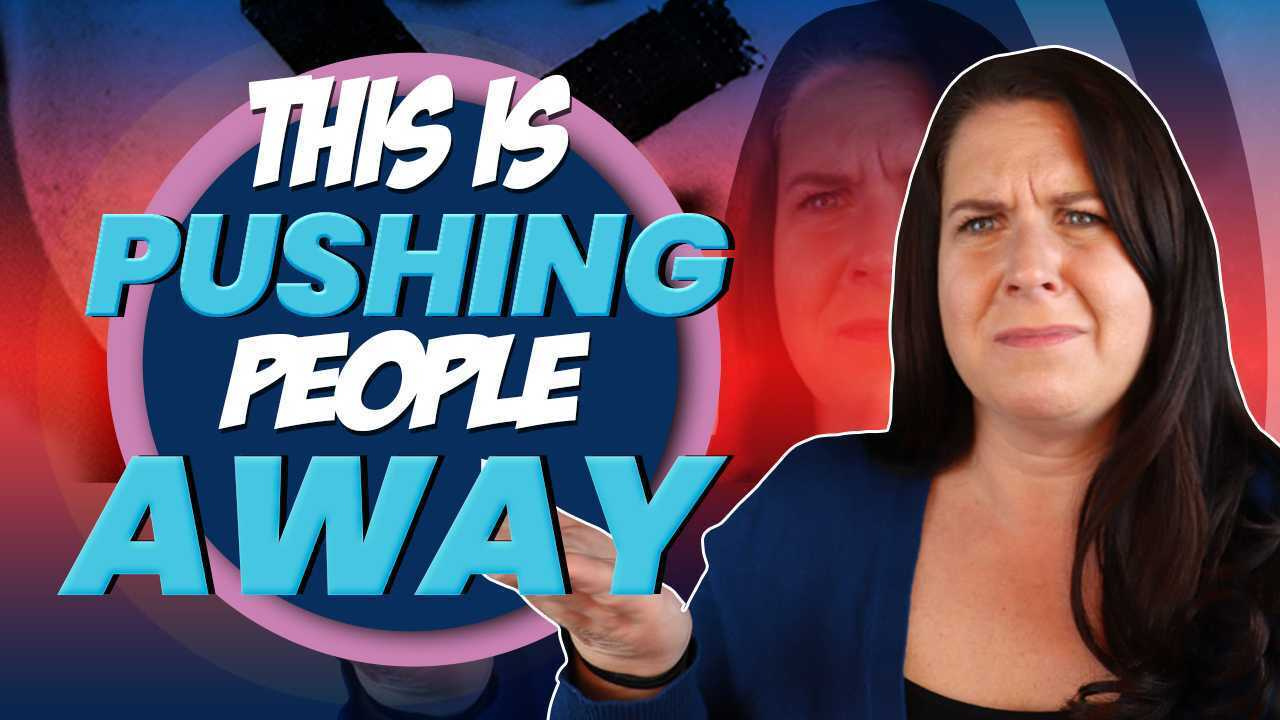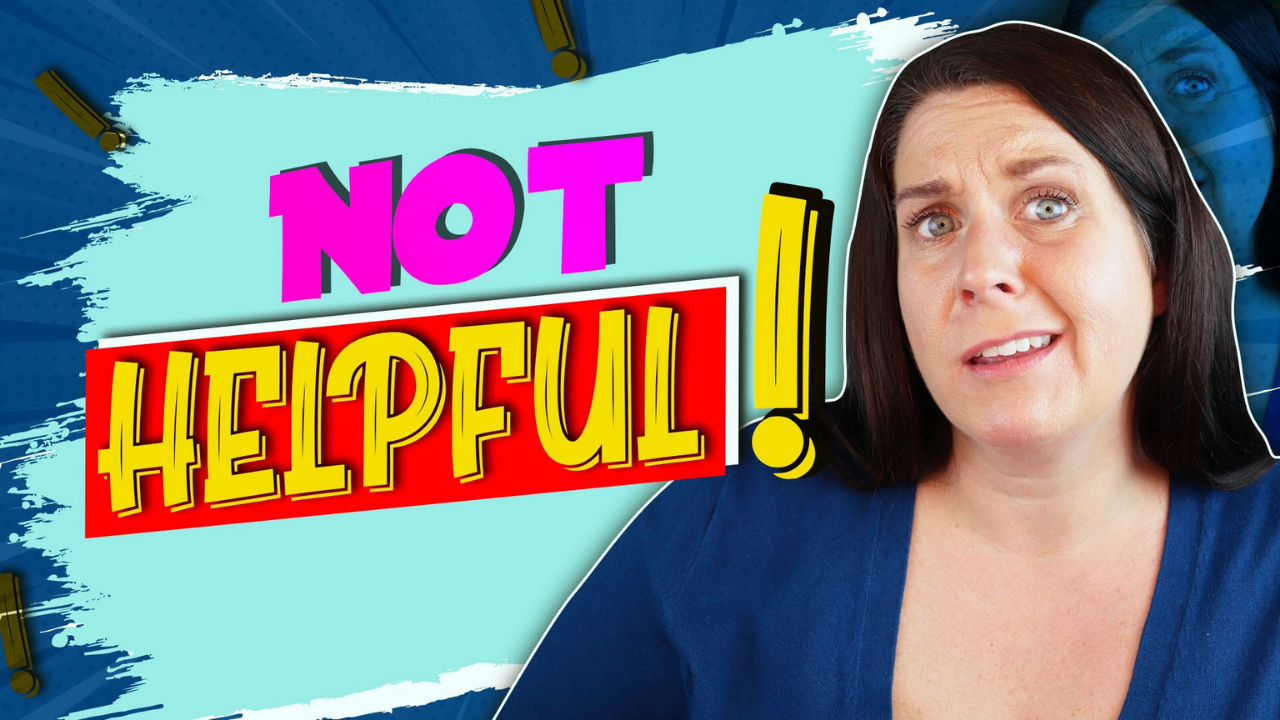Huge Communication Mistakes that are Ruining Your Relationships! 🚧
These five common communication mistakes are probably damaging your relationships. In fact, you may be doing them automatically but it's pushing people away from you. We're going to start from the least problematic and go to the most problematic mistake. I think you're going to be surprised by the fifth one, you're going to be like I can't believe a counselor said that but I think it's an important one!
When you hear these common mistakes people make, you're going to think, "oh I've done that before!" and it's okay because I've done all of these things before too. Anyone can benefit from understanding these five mistakes.
The first common communication mistake is the one-upper or relating to someone's story too soon. This one is probably the one that I'm most guilty of doing. For example, someone says, "oh my gosh I had the worst day!" Then they start telling you about their bad day and you start to relate to that because you're like "oh yeah I know what that's like". What happens is you jump into the conversation with your story about how you had a really bad day, or how it happened to you once, or how your day was worse than their day. You take over their story or one-up their story. It's our way of trying to relate to their story. However, it can feel like you're pulling the attention back on to yourself and it can feel defeating to the person that you're talking to. It's okay to relate your story, but listen to their story, ask questions, be empathetic and validating and then offer your relation to their problem.
The second big communication mistake that you could be making is sometimes people say really hurtful things, under the guise that they're truthful.
People will say mean or passive-aggressive replies and when you call them out on it. They'll reply with "Well, It's just the truth!".
Here's the deal you can be truthful without being hurtful! Figure out how to say it in a palatable way, so that they can actually hear what you're trying to say if you're really trying to help someone. To be on the receiving end of this is frustrating.
The third common communication mistake that people make is trying to get people to change their behavior by telling them what they're doing wrong.
When you do this, you're going to make them defensive. Even though you're trying to help or maybe you're trying to get them to see a different way it makes that person put their walls up. Rarely are you ever going to get them to be receptive and see it your way? Unless someone is saying, "Hey I just can't make this work what am I doing wrong?" then don't offer your opinion. If it's something more relational, psychological, or personal you want to have that conversation differently. They may have made 10 mistakes but they did this one part of it really well and you can be like, "you know what you did that one thing right and that was kind of impressive!" The best way to get someone to bring their walls down and make them change is by telling someone something they're doing right.
The fourth common communication mistake is thinking or assuming that you know how someone else feels or thinks or that you know or assume you know what their intentions are.
This is what this is something that we talk about in cognitive behavior/therapy. It's mind-reading, for example, someone would say "oh I know they did that because they just don't respect me or they just don't even care about anyone but themselves". We jump to these conclusions about why people do what they do and we think we know what they think. Number one, that's inaccurate. You don't know what they think... you may have an idea! If that's what you're thinking, maybe come at it from a curiosity standpoint and just ask instead of assuming the other big problem. When you assume something negative, it attaches a personal meaning. For example, if someone tends to be late you might be thinking to yourself, "They don't respect me at all and don't care about other people's time!" That's probably not what's going on I'm not saying it's okay I'm not saying you shouldn't address it, I'm just saying when you do that you get yourself upset and then you start behaving in a negative, hurtful, or passive-aggressive way.
The fifth common communication mistake that people make is talking about their feelings. SHOCKING coming from a counselor, right? That's right. I'm going to tell you to stop talking about your feelings.
Don't get me wrong, there is a place for that, but there's a more strategic way to go about this. It's like putting gasoline on a fire. If you're scorekeeping every single mishap or mistake you're going to be stirring up negative feelings toward that person and letting them know how much they've hurt you, you're not going to heal and you're going to push them further away from you. You have to be more strategic in how you're communicating your feelings with someone.
Amber Hollingsworth


